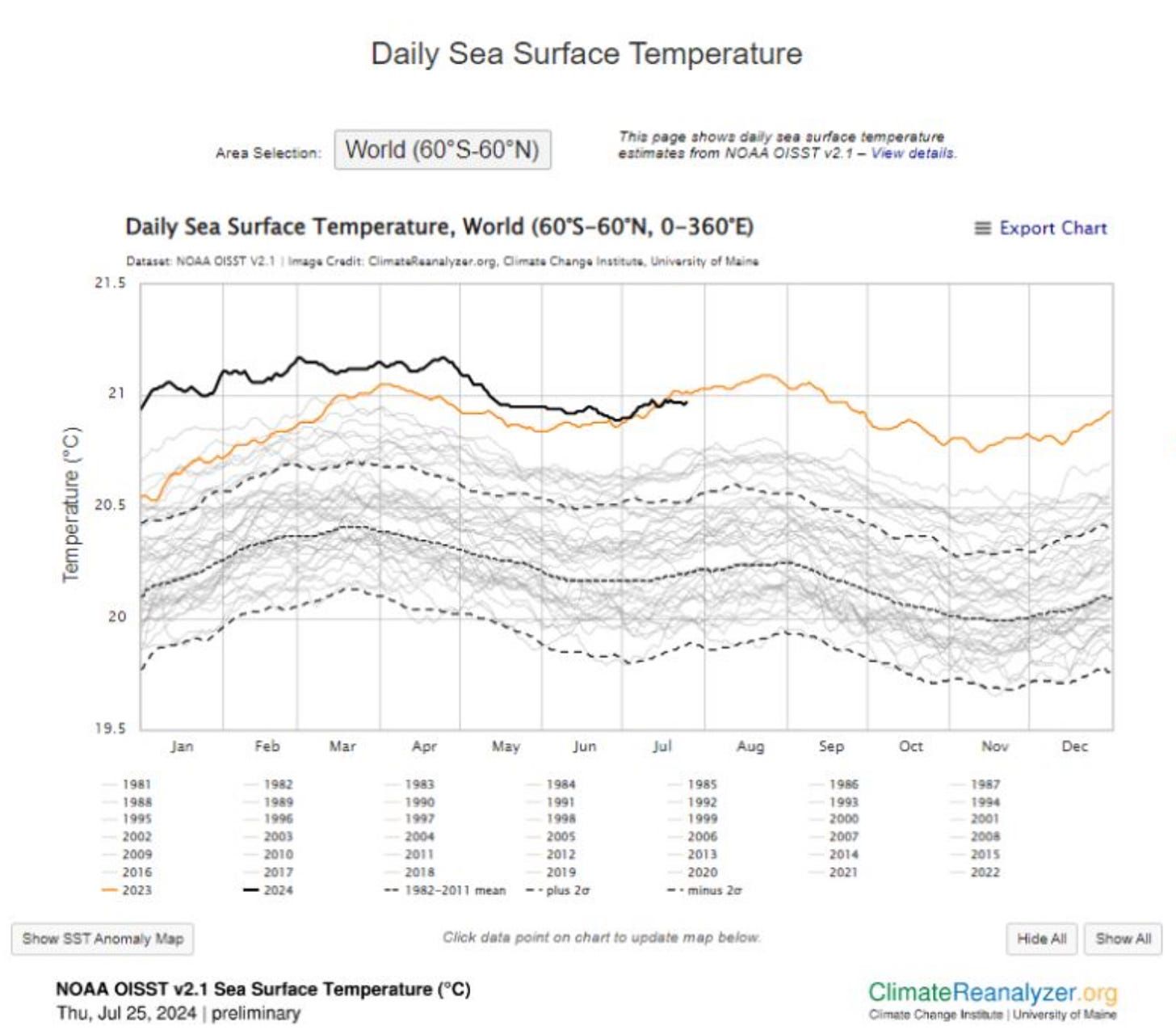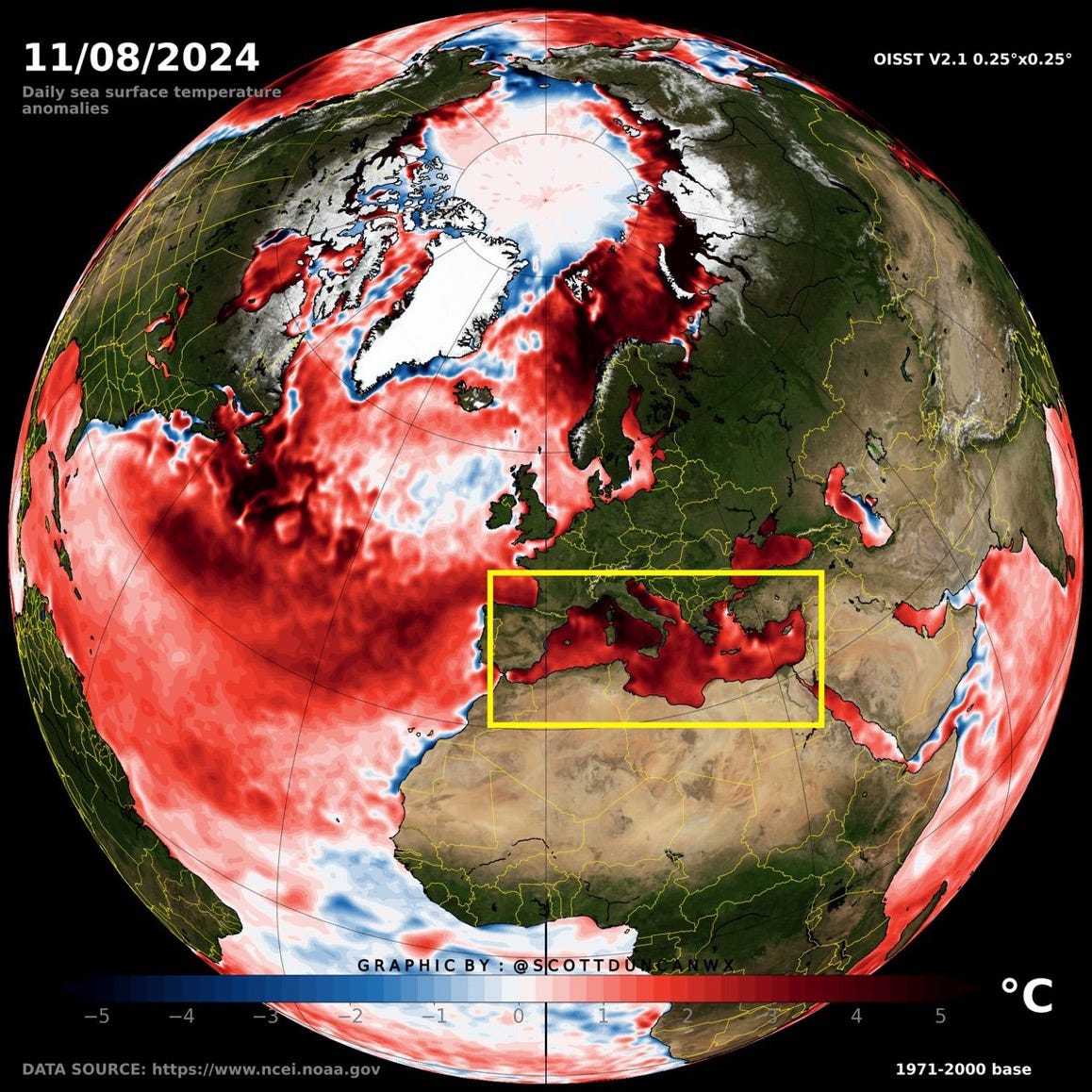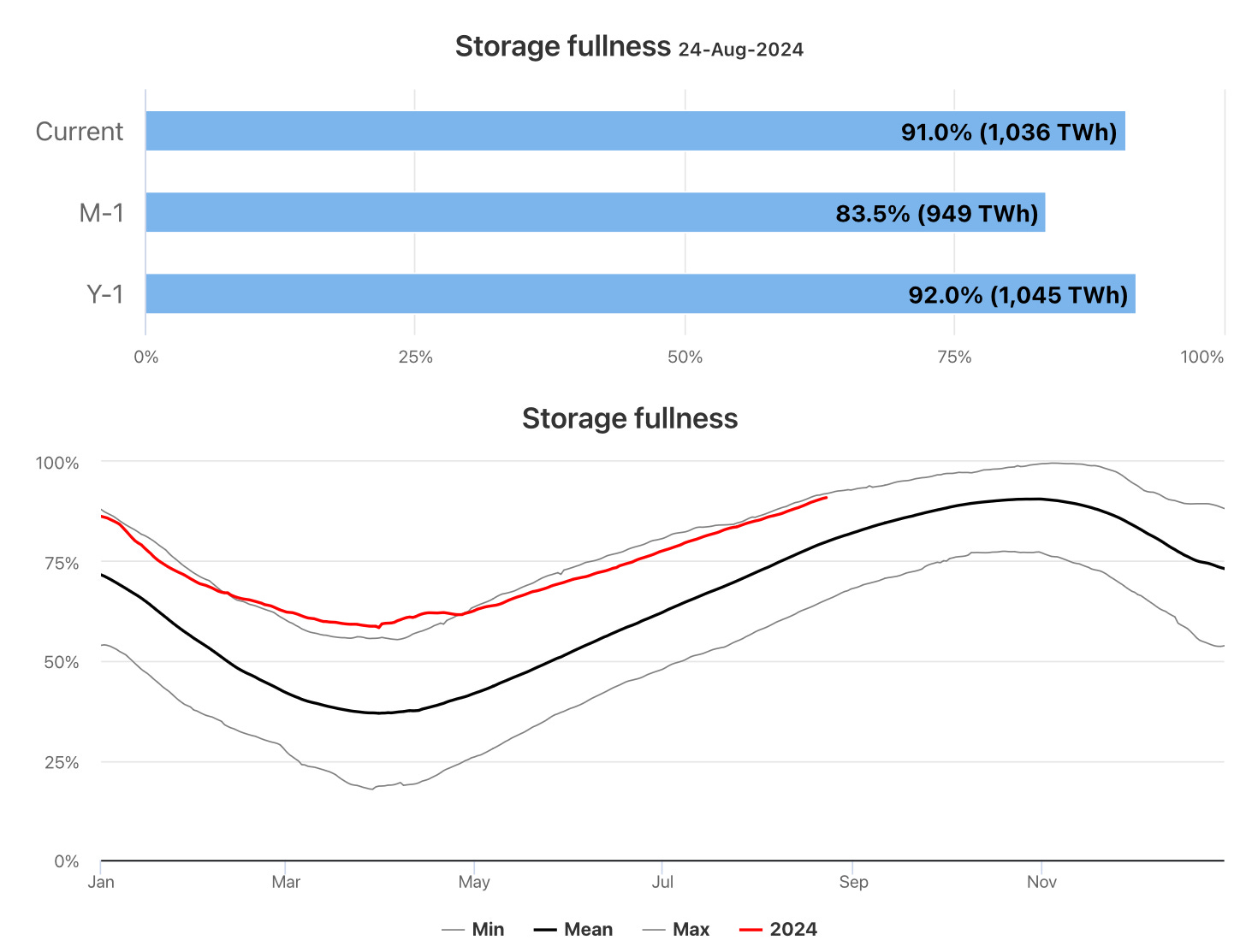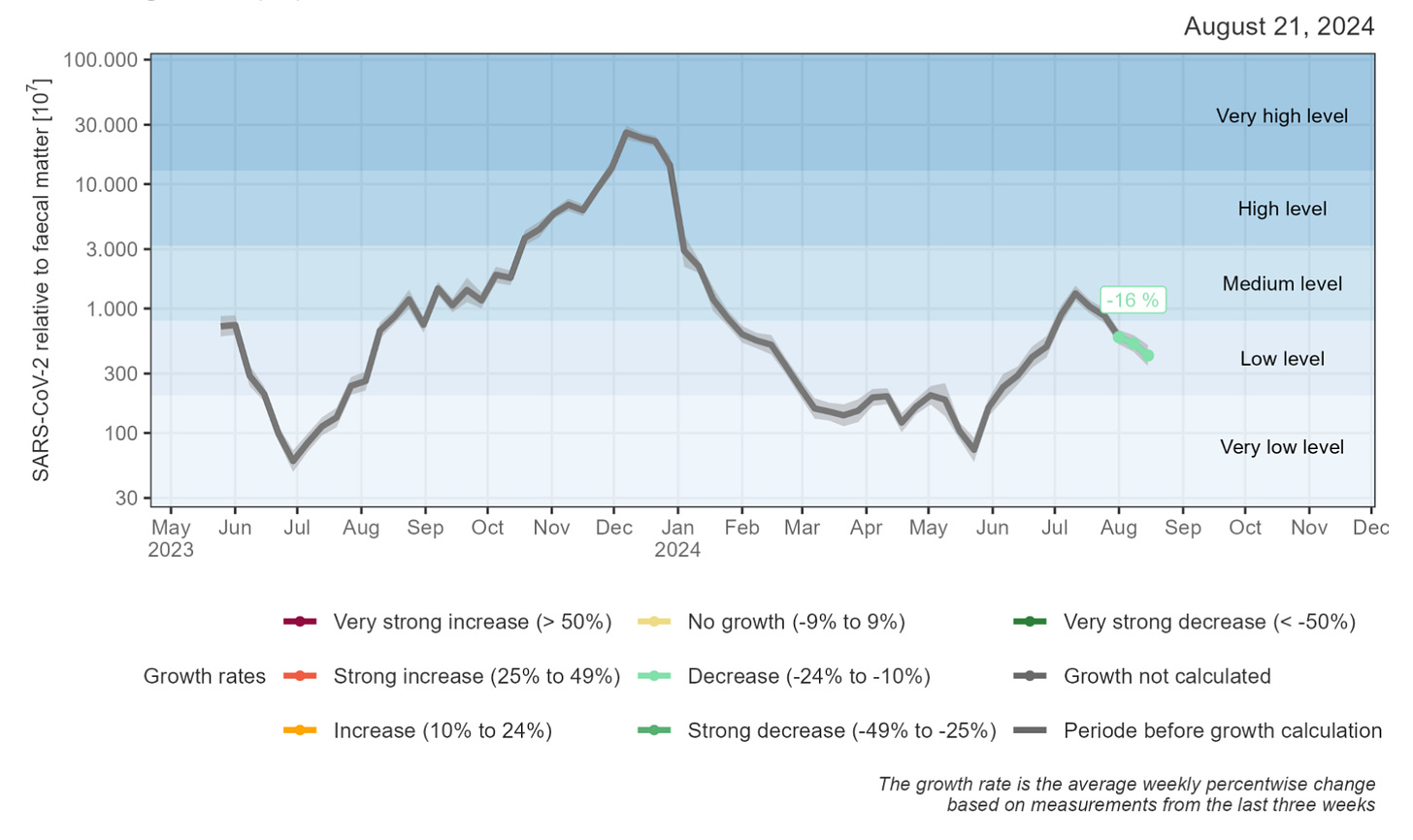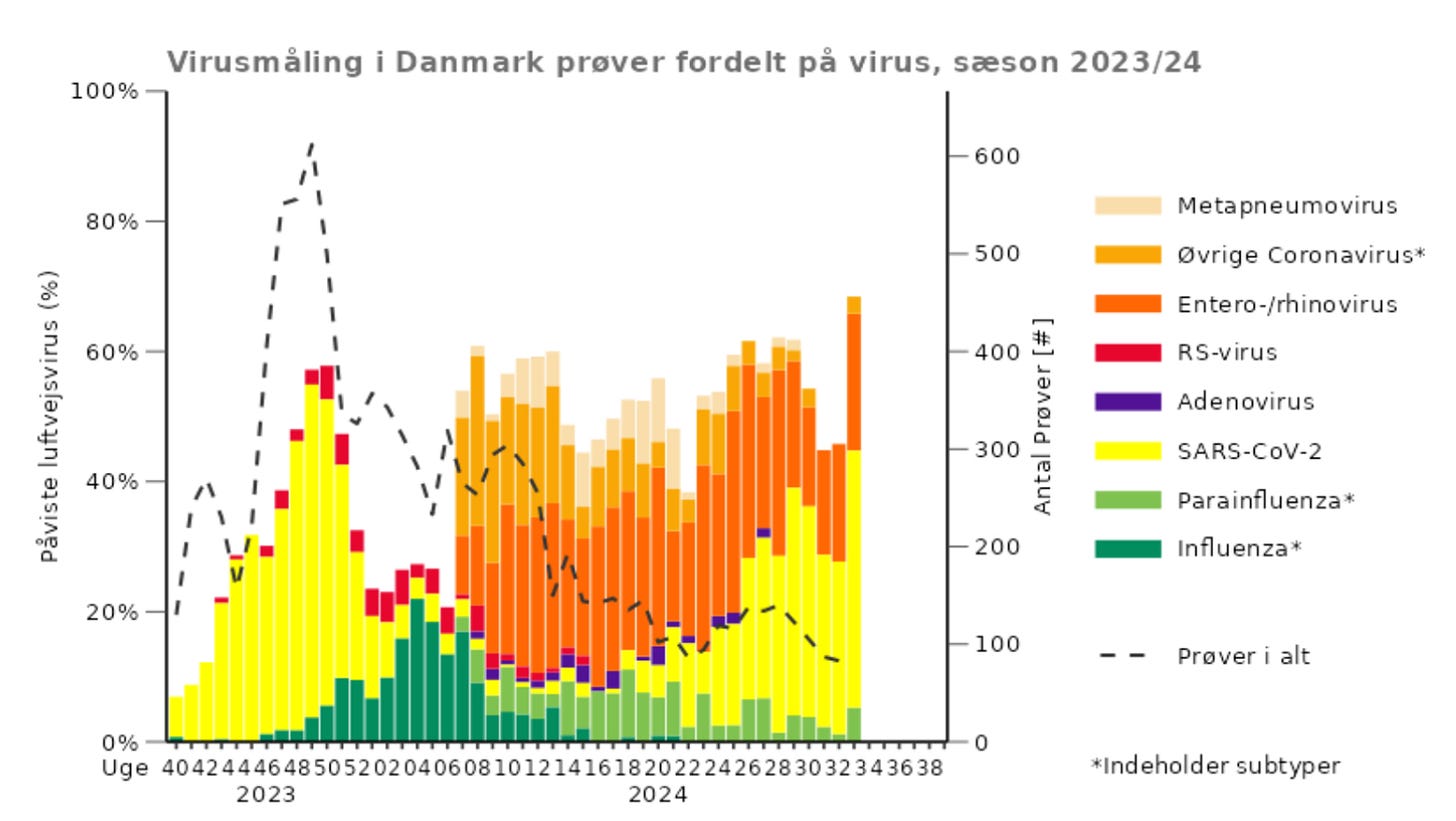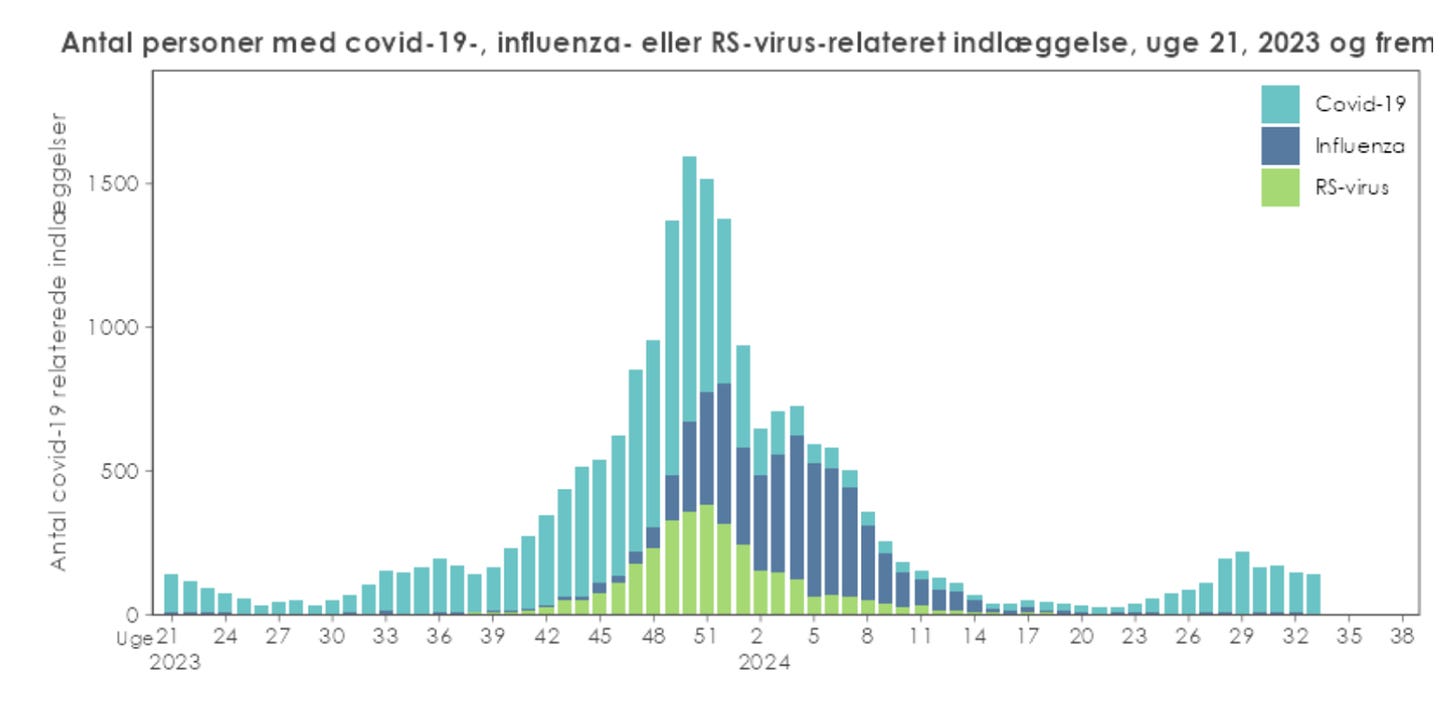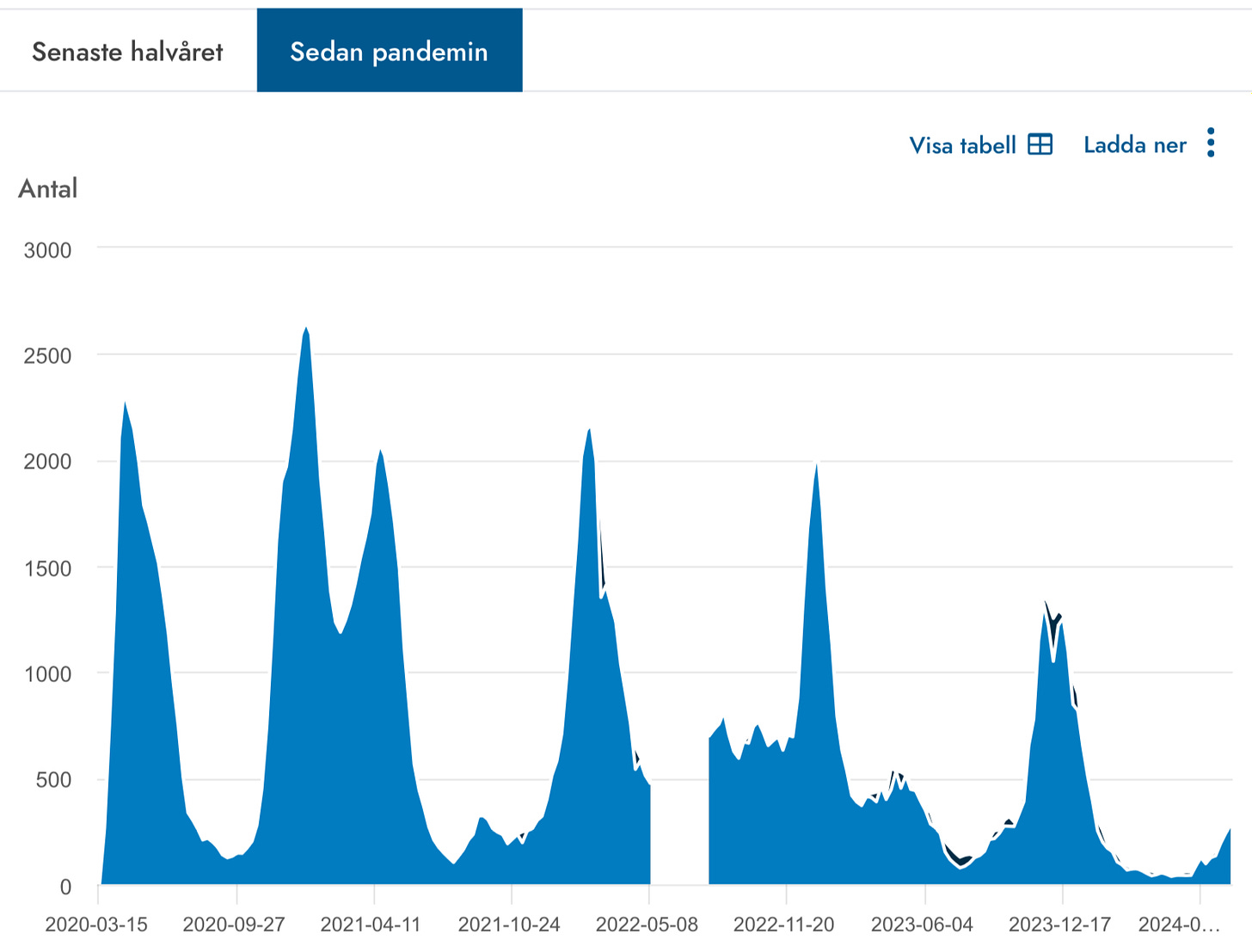🍃Environment & Energy⚡️
🌍
In 2023, the planet experienced some of its most intense and alarming climate changes to date. According to the Annual 2023 Global Climate Report, the year was not only the hottest on record since temperature tracking began in 1850, but it also set a new high for global sea surface temperatures. A recent study by scientists from the National Centers for Environmental Information (NCEI), published in Geophysical Research Letters, highlighted a startling new trend in the oceans called “super-marine heatwaves." These were unprecedented periods of ocean warming that broke all previous marine heat records.
The study used sea surface temperature data from a special NCEI surveillance system to analyze global sea surface temperatures, revealing a troubling trend. Starting in March 2023, daily sea surface temperatures began smashing previous records and didn’t let up until the summer of 2024. At its peak, the ocean’s surface temperature hit an all-time high of 19°C on August 21, 2023. These aren’t just numbers; they reflect a dangerous shift in our oceans, driven by long-term warming trends, increasing greenhouse gases, and changing climate patterns like the transition from La Niña to El Niño.
The impacts of these super-marine heatwaves are far-reaching and devastating. These extreme temperatures have led to significant disruptions in marine ecosystems, including massive coral bleaching events, collapsing fisheries, and widespread damage to marine biodiversity. These super-marine heatwaves, with temperature anomalies ranging from 0.1°C to 2.0°C above average, were recorded all over the world—from the Arctic to the North Pacific and the western Indian Ocean. Warmer waters also mean more fuel for hurricanes, leading to stronger and faster-developing storms. In fact, 2024 saw the formation of Hurricane Beryl, the earliest Category 5 hurricane on record, which quickly intensified due to these record-breaking warm waters.
-
Ocean temperatures continue to set new highs. Earlier this month, the surface water temperature in the Mediterranean reached a jaw-dropping 28.15°C, setting a new heat record. 18 of the 20 hottest sea temperatures ever recorded in the Mediterranean have occurred in the last 13 months.
🇩🇰
Warmer ocean waters mean increasingly violent storms. That is certainly the situation playing out today. The Mediterranean has been hit by a number of vicious storms in just the last week or two. Barely a week ago, a storm lashed the Balearic Islands with nearly 100 kilometres per hour winds and torrential rain. The storm stranded boats, triggered flooding, and forced hundreds of people to evacuate. Another savage storm struck near Sicily a few days ago, sinking a British luxury yacht.
Niels Bohr Institute Climate Professor Eigil Kaas says we can expect things to get worse.
“Violent storms are becoming more frequent in the Mediterranean, but actually also in the rest of the world. When it gets warmer, the risk of severe weather increases. When more cold air comes in from the north or northwest and mixes with the warm air over the Mediterranean, it creates an explosive situation, and the atmosphere goes crazy.”
Kaas says that while climate change increases the explosive power of storms in the Mediterranean, it will also mean that southern Europe as a whole is going to continue to get hotter and drier. He says extreme droughts in the region will cause a number of impacts that will be felt all across Europe. These include disruptions to food supplie, with southern Europe being the continent’s primary producer of fruits and vegetables.
🇩🇰
The storm that slammed into Denmark late Friday brought lots of rain and powerful winds at a velocity not seen in the country during the summer months in over three decades. The Danish Meteorological Institute said that Vejle saw a whopper of a cloudburst with more than 17 millimetres of rain in just ten minutes. Esbjerg saw 15 mm in the same short time span.
“Cloudbursts are defined as more than 15 mm of rainfall in 30 minutes, so the cloudburst in Vejle packed a big punch.”
The strongest winds were measured at 35.1 meters per second (126.3 kmh) in Thorsminde on the west coast of Jutland. Winds reach hurricane strength when they exceed 32.7 meters per second. DMI says those are the strongest summer winds recorded in Denmark since 1990.
Most of the country was hit again late Saturday night when a short but vicious storm rolled through, bringing with it thunder, lightning, strong winds, and sheets of rain.
🇨🇦🇫🇮
Wildfire smoke from Canada has made its way to Finland, providing an unusually red glow when the sun sets. Weather experts say the particulate matter from the smoke is high in the atmosphere, far enough away to not pose a health concern but high enough to give the sun a reddish tint.
Wildfires in Canada have so far scorched nearly five million hectares of land and driven thousands of people from their homes, according to the Canadian Interagency Forest Fire Centre.
🌎 🇫🇮 🇬🇧
If you are a coffee lover, then prepare to pay a lot more for your hot cup of Joe. A mix of geopolitics and climate change are conspiring to drive up global coffee prices. Climate change-driven extreme weather events have resulted in poor harvests in Vietnam, Brazil, and Colombia, the world’s major coffee-producing nations. Add in shipping disruptions caused by conflicts in the Middle East, and coffee prices have hit a 15-year high and are still rising.
In Finland, the price of half-kilogram packages of coffee from some of the biggest and most popular brands has doubled. In the United Kingdom, coffee prices are up 15% just this year, and experts are forecasting price increases could exceed 25% over the coming year. Giuseppe Lavazza, CEO of Italian coffee giant Lavazza, says he has never seen the coffee market in turmoil like it is now.
🇩🇰
The transition to electric vehicles is only as good as the charging infrastructure that is in place. Having an EV is no good if you can’t find a place to charge it. This is a lesson being learned the hard way in parts of the world, but not in Denmark. According to the latest inventory done by Dansk e-Mobilitet there are 28,913 charging stations in place across the country, a 17% increase from their last count.
Director John Dyrby Paulsen:
“Development within green transport is lightning fast, both in relation to selling electric cars and setting up charging stations. It is important that the charging infrastructure is ahead of the development in the number of electric cars, so that both new and existing electric drivers have good charging options. In this way, more people can scrap the fossil fuel car in favour of an electric one.”
Paulsen is urging the Danish government to clear the way for a continued rapid buildout of charging infrastructure and not gum up the works with too much regulation. It is also lobbying the government to abandon plans to increase registration taxes on EVs in 2026.
Of the available charging stations, 12% are lightning chargers, 5% are rapid chargers, and the remaining 83% are regular charging stations.
-
People in Denmark need to drastically increase their vegetable intake when it comes to their daily diet. According to a new study from Voxmeter, only 55% of people in Denmark eat vegetables every day.
Cancer Society Chief Consultant Susanne Tøttenborg says that number is much too low.
“From a health point of view, it's a real shame that the vegetables take up so little space on the menu. Not only for fighting cancer but also for cardiovascular diseases, type 2 diabetes, and obesity. There are lots of fibres, vitamins, and minerals, and it fills you up well with just a few calories.”
The Danish Food and Drug Administration’s official guidelines advise that people eat 600 grams of vegetables daily.
Tøttenborg would like to see the price of vegetables lowered, taxes increased on unhealthy candy and soft drinks, limits placed on marketing unhealthy foods, and the introduction of healthy school meals for children. She says that would increase the consumption of vegetables and provide an immediate positive impact on people’s health.
-
New efforts are being made to save an endangered frog population in Northern Sjælland. In Danish, the frog is called løgfro, which translates literally as onion frog, because of the smell it emits when it is scared. The species is endangered, and Halsnæs Municipality, the Nature Agency, and National Park Kongernes Nordsjælland have teamed up to try and save the frogs. A large number of løgfro were released into the wild near Frederiksværk with the hope they would help pull the frog population back from the brink.
The frog population declined significantly due to a lack of habitat. In concert with releasing the frogs, there has been a concerted effort to restore crucial habitat, work that will continue for at least the next two years.
-
Environmental zones prohibiting older model diesel cars from driving in the city centre of Aalborg and other Danish cities are proving a challenge for some. Aalborg Councillor Jan Rose Nymark Thaysen says there are some people in the city who have to risk fines in order to get to the city’s hospital. In one case, he notes that a resident who owns an older diesel car needs to be at the hospital, located inside the environmental zone, every three months for a health check-up. He says not everyone can afford to go out and buy another car, but he added that while it is a legitimate problem, making changes to the zone could take up to a year.
The environmental zones were established last year, prohibiting diesel cars that do not have an approved particulate filter in their exhaust system from driving in zones, which encompass most large city centers. The zones are monitored by cameras, with fines sent out to the drivers of offending vehicles.
-
Denmark’s vaunted inter-city rail service continues to contract in the country’s rural areas. There are proposals on the table that will further diminish and possibly, in some cases, end inter-city rail service altogether in some communities in Northern Jutland. DSB has announced it will make some cuts that will come into force in 2026. Politicians in Region Nordjylland are now trying to figure out which cities will see reduced inter-city rail service and which will have their service cut altogether.
In some cases, regional train service will be extended, but it will mean trips to a major rail hub in Aarhus, for example, will take longer with the route involving one or more changes.
-
After some high-profile struggles during the pandemic, it appears Denmark’s national rail operator is finally seeing an increase in passenger numbers. Last year, DSB logged a total of 162 million passenger trips, a 9% increase from rail travel numbers in 2022. While this year is far from over, the good news kept coming in the first few months of 2024. DSB reports that there were 26.9 million passenger trips in January and February of this year. That is a 7% increase compared to the same two months the year before.
DSB has had some big challenges, first with the pandemic severely kneecapping rail numbers for the better part of two years. That was followed by major infrastructure upgrades and some rough weather, causing widespread delays and frustration from rail passengers.
Commercial Director Jens Visholm says DSB has finally turned the corner.
“We are currently experiencing great growth in both regional traffic, travel across the Great Belt, and S-trains. It is positive that more customers are choosing the train, and we expect the trend to continue through 2024.”
In Copenhagen, S-trains have proven to be very popular, with passenger numbers rising by 1.4 million in just the first few months of the year.
🇫🇮
The Finnish government’s climate policies are again being challenged in court. A group of environmental and human rights organizations launched a court challenge claiming the government’s failures to meet its own climate goals are a violation of both the country’s Climate Change Act and fundamental human rights. Finland currently will not meet its goal of being carbon neutral by 2035, and it will also miss its EU climate commitments. Meeting both targets is enshrined in law within the Climate Change Act. A recent report from the expert Finnish Climate Change Panel concluded that the government’s actions have increased transportation-related CO2 emissions in spite of EU mandates to do the exact opposite.
The groups launching the court action include the Finnish Association for Nature Conservation, Greenpeace, Amnesty International, the Finnish Nature Association, the advocacy organization Finnish Sámi Youth, and Climate Parents Finland.
This is the second legal challenge against the Finnish government’s climate policies. The first was filed and dismissed in 2022.
What differentiates this case from the previous one is the inclusion of human rights as grounds for climate action. The group’s court filing says that “the inadequate measures of the government endanger the right to life, health, and a clean, healthy, and sustainable environment.” In particular, the case notes that climate change is a clear and present danger to the Finnish indigenous Sámi population in the country’s arctic.
Finland’s Supreme Administrative Court must now decide whether to hear the case.
-
Stora Enso, a forestry company in Finland, is on the hot seat after its logging equipment repeatedly drove over critical habitat for endangered freshwater pearl mussels, causing extensive damage. Finnish forestry management firm Metsähallitus said logging machinery repeatedly crossed the shallow river, killing thousands of the endangered mussels.
Metsähallitus Project Manager Pirkko-Liisa Luhta said to make matters worse, the company knew full well the habitat was there and the measures it was responsible for taking to protect it.
“The devastation in the stream is one of the worst events we have ever witnessed.”
Oulu police are now investigating the matter as a suspected serious environmental crime. If found guilty, the company could face millions of euros in fines.
Climate and Environment Minister Kai Mykkänen is urging the company to pay for cleaning up and restoring the habitat it destroyed.
“In Suomussalmi, endangered species were destroyed due to outrageous activity. This is a criminal case. This would not have happened if everything had been done correctly.”
Endangered freshwater pearl mussels live in about 100 rivers and streams in Finland and play a critical role in water quality and aquatic biodiversity. It has been a protected species in Finland since 1955.
🇸🇪
Sweden is trying to use the carrot to convince people to buy an electric vehicle. A new program offers drivers who own a car at least 15 years old, and that meets several other requirements, 10,000 Swedish krona (about $1,323 Cdn) to have their old vehicle scrapped. The hook is that the money must then be spent on the purchase or leasing of an EV.
Climate and Environment Minister Romina Pourmokhtari says the hope is that this will incentivize people to buy electric vehicles and further help the fight against climate change.
“Swedish climate policy needs more carrot and less stick. This is a proposal that gives those who are thinking of getting an electric car an extra boost.”
Critics say the move is a waste of money that will result in very little benefit to the climate. They also point out that very few vehicles meet the requirements. Last year, out of the 134,000 vehicles that were scrapped, just 800 would have qualified for the fiscal incentive.
Sweden appears to be on track to miss its 2030 climate goals due in part to government changes that have resulted in greatly increasing emissions.
-
After one of its ferries ran aground not once but twice off the coast of Sweden last year and then left a four-kilometre-long oil spill behind it, the company that owns the ferry is trying to dodge the fine. The Swedish Coast Guard fined TT-Line 1.2 million kroner (about $160,000 Cdn), but the company is appealing the fiscal penalty. It blames the incident on a “human navigation error” and says that it did everything it was legally obligated to do to limit the oil spill.
About 55 tonnes of oil leaked out of the vessel along a section off the coast of Karlshamn.
🇪🇺/🇨🇳
Tesla is getting a break on import tariffs on cars it ships from China into the European Union. The EU, concerned about China swamping Europe with electric vehicles, recently announced punishing import tariffs in a bid to try and level the playing field for European EV makers. The EU believes Chinese EV makers are benefiting from huge amounts of state aid, which the EU considers illegal.
Tesla challenged the tariff, and the EU has agreed to lower the import duty on its vehicles coming from China from 20.8% down to 9%. Chinese EV makers were not so lucky. Tariffs on EVs from China’s BYD were adjusted to 17%, Geely has to pay 19.3%, and SAIC gets hit with a 36.3% import tariff.
🇩🇰 🌎
Artificial intelligence is changing the game, but it also gobbles up a lot more energy and is much more environmentally unfriendly than a normal Google search. Every time someone taps AI tools like ChatGPT. the work is done by massive data centres to fire back answers in a matter of seconds. Those data centres use up a lot of electricity and emit a significant amount of CO2.
University of Copenhagen Assistant Professor of Computer Logic Raghavendra Selvan spoke to DR to say that most users are oblivious to AI’s climate footprint.
“If people know how much energy it costs to interact with ChatGPT, I think it will have an impact on one's choice and cause one to change behaviour.”
Selvan says that according to his calculations, just one ChatGPT prompt uses enough energy to charge a phone 40 times over, binge Netflix for an hour, or drive an electric car for one kilometer. A Google search uses a fraction of that energy. And the energy drain will only get worse as more and more companies pile on the AI bandwagon. The International Energy Agency estimates that by 2026, energy use by data centres will double. That will be roughly equivalent to the energy consumption of Japan.
The exact CO2 emissions picture is more unclear, but according to the Institute of Computer Science, the emissions from the information and communication technology sector are already at least as large as the total CO2 footprint from global air traffic. Meta, the company behind Facebook, recently released data showing that training its AI chatbot, Llama3, had resulted in 2,290 tonnes of CO2 emissions. Microsoft and Google have yet to publish their emissions figures. However, both companies announced in July that they do not expect to achieve their climate goals due to the development of artificial intelligence.
On top of energy use and greenhouse gas emissions, data centres also use huge amounts of water to cool down their computers. The exact amount is unclear, but according to a report from Microsoft, its water use increased by 34% from 2021 to 2022 to just a shade under 6.5 billion litres.
🇩🇰🇩🇪
Plans for an energy island in the North Sea that would supply electricity for millions of people have been put on hold. Danish Climate, Energy, and Supply Minister Lars Aagaard told Børsen that his ministry has entered into talks with Germany about the possibility of co-financing the massive project. Should those talks be successful, then the hope is that the energy island will be completed and come online in 2036 at the earliest. This amounts to a three-year delay on the initial project timeline.
The project has been struggling with financial issues for a while.
🇪🇺
Gas storage levels in the European Union rose past the 90% mark this past week, well over two months ahead of the November 1 deadline. This is roughly on par with storage activity last year, when the EU hit the 90% mark on August 18, according to Gas Infrastructure Europe.
EU Commissioner for Energy, Kadri Simson, says this winter it isn’t just energy use in the EU topping the concern list.
“We have reached our 90% gas storage capacity target for the winter well ahead of the deadline for the second year in a row. This highlights the EU’s readiness for the coming winter, based on our intensive work in the past 2.5 years. The Commission will continue to monitor the situation so that gas storage levels remain sufficiently high across the coming months and so that we also maintain our focus on improving energy efficiency and boosting the renewable energy roll-out. I also want to take this opportunity to highlight the much more difficult situation in Ukraine, where the energy sector is under heavy and constant attack from Russia. Europe must continue to stand by Ukraine and provide the necessary support to its energy system so that the Ukrainian population too can get safely through the tough winter ahead.”
Gas storage levels in the EU didn’t even fall to the 50% level last winter as climate change resulted in record warm winter months. But as always, the weather is the ultimate wild card, and there is no guarantee that will be the case this winter.
The EU Commission says part of the energy transition has been a significant shift to liquified natural gas. The United States has become the biggest LNG supplier to the EU, followed by Norway.
🦠Outbreaks🦠
🇦🇷
Authorities in Argentina have quarantined a cargo ship over suspicions that a person on board might be infected with mpox. According to Argentina’s Health Ministry one of the crew members “showed signs of cyst-like lesions on the chest and face.” The man in question has been put into isolation on the ship but the vessel itself remains quarantined. I
Last week, the WHO declared a global health emergency due to a new strain of mpox called ‘Clade 1’ that is driving a fairly serious outbreak across several African countries. The first infection of the new variant outside of Africa was also recently confirmed in Sweden.
🇸🇪
The Swedish Public Health Agency has expanded its recommendations for an mpox vaccination to include people traveling to a country where there is an ongoing outbreak. High risk populations, especially gay men, continue to be encouraged to get vaccinated.
State Epidemiologist Magnus Gisslén says the expanded recommendation includes healthcare workers, aid workers, and anyone from Sweden who is traveling into an outbreak zone and might have close physical contact with people there.
“I want to emphasize that the vast majority of travelers do not need vaccination against mpox. With this update of the recommendations, we make it extra clear that there are a limited number of people at high risk that we see as having the need.”
In order to get an mpox vaccination in Sweden, a person must first get an assessment from their doctor.
“The most important measure to protect yourself against mpox if you are in an area with ongoing spread is to refrain from close physical contact and, above all, any new sexual contact.”
🇩🇰
Bavarian Nordic, a Danish pharmaceutical company, has signed a contract to provide 440,000 doses of the mpox vaccine to an unnamed European country. The news came in a message sent to the company’s investors this week. The company has already been tapped to produce vaccine doses for the World Health Organization as well. The contracts will provide a pretty serious boost to the company’s bottom line, with the contracts worth a cool three billion kroner this year alone.
🌍
Mpox vaccinations might soon get underway in several African countries that have been hit hard by the most recent outbreak. That is according to the African Center for Disease Control. The World Health Organization is coordinating vaccination deliveries from a number of suppliers, including Denmark’s Bavarian Nordic.
Director General Jean Kaseya:
“We will start in a few days if we are sure that everything is in place. At the end of next week, the vaccines will start arriving in the DRC and other countries.”
There have been over 1,400 new mpox infections across Africa in just the last week. This new outbreak is being driven by a new, more concerning mpox variant called ‘Clade 1’.
🦠COVID🦠
🇩🇰
COVID activity, as measured by wastewater surveillance, continues to decline across Denmark. The Statens Serum Institute says there was another 16% drop in virus activity the week before last. That said, there was also a slight increase in the number of test-confirmed coronavirus infections the same week.
The institute’s sentinel surveillance system, voluntary testing by employees in some of Denmark’s largest workplaces, shows an increase in confirmed COVID infections.
The SSI says COVID-related hospitalization numbers remain roughly the same week-to-week, with the “burden on the healthcare system still at a low level.”
🇸🇪
In Sweden, COVID hospitalizations (284) continue to rise (+34) while the number of severely infected people requiring intensive care (12) also crept upward (+1).
Sweden still remains in the grip of a summer COVID infection wave. In its latest weekly update, the Swedish Public Health Agency says coronavirus indicators continue to rise across the board.
“Overall, the spread of COVID is assessed to be ongoing throughout the country at a low level, compared to the winter peak in November–December 2023. It is likely that the higher spread of infection will continue in connection with the fact that many are now returning to work and school.”
The health authority blames new coronavirus mutations KP.2 and KP.3, which are the dominant strains in Sweden, for the surge in infection activity.
There were 812 new infections in the latest reporting week, a 29% week-to-week increase. The lion’s share of infection activity (72%) is among vulnerable seniors over 65. The health agency says the number of confirmed infections among seniors rose 30% week-to-week.
Sweden suffered another 28 coronavirus fatalities, four fewer than the week before. All but one of those deaths were seniors over 65.
🇳🇴
The Norwegian Institute of Public Health is again scaling back its COVID reporting. It does say that coronavirus infection activity is considered stable throughout the country. That said, there was a slight uptick in the positivity percentage from one week to the next. The NIPH says coronavirus-related hospital admissions have been “relatively stable” for the last three weeks. It does not provide any actual numbers. The institute says the KP.3 variant is now the dominant strain in Norway.
The whooping cough epidemic that has been sweeping across Norway appears to be abating. The NIPH says monthly case numbers appear to be on the decline, with 516 confirmed infections so far in August. There were 846 in June.
🇺🇸
The U.S. Food and Drug Administration has given its approval for the updated variant-specific COVID vaccines from both Pfizer/BioNTech and Moderna. The approval covers use among people 12 years old and older. However, the agency also granted an emergency use authorization for the vaccine to be used for infants at least six months old up to children 11 years of age.
The updated vaccine formula targets the KP.2 coronavirus strain to better protect against severe infections resulting in hospitalization and death.
FDA Center for Biologics Evaluation and Research Director Dr. Peter Marks
“Vaccination continues to be the cornerstone of COVID-19 prevention. Given the waning immunity of the population from previous exposure to the virus and from prior vaccination, we strongly encourage those who are eligible to consider receiving an updated COVID vaccine to provide better protection against currently circulating variants."
The vaccine approval comes as the number of coronavirus infections continues to rise across the United States.
🇺🇦Ukraine/Russia War🇷🇺
Ukraine needs more foreign aid, and a lot of it, as the war against Russia drags on. Ukrainian Deputy Finance Minister Olga Zykova said her country will need $12-15 billion (USD) more in foreign aid next year than it previously expected.
Ukraine requested $38 billion until 2024 and has so far received about $24 billion of that amount from allied countries.
-
Despite pledges to increase military support for Ukraine at July’s big NATO summit, Bloomberg News is reporting that several unnamed countries within the alliance have not yet followed through on their promises. Promised donations of weapons, equipment, and air defenses from the countries in question have yet to arrive and likely won’t anytime soon, according to Bloomberg.
While the article doesn’t specify which countries are dragging their feet, it is worth noting that Ukrainian President Volodymyr Zelenskyy did drop some names in a recent televised address.
“War doesn't take vacations. Decisions need to be made, and I am addressing the US, UK, and France in particular.”
🇩🇰🇺🇦
Denmark is donating its 20th military aid package to Ukraine. As is now the Danish strategy, the donation is almost entirely monetary. The 738 million Danish kroner donation (about $149 million Cdn) includes funding targeted at continuing to help build up Ukraine’s own defense industry (300 million Danish kroner). The Danish strategy is to build up Ukraine’s ability to churn out its own weapons and ammunition closer to the frontlines. Then, instead of scrounging Danish military warehouses, they can just give Ukraine money to buy/produce what it needs directly. Another 112 million kroner has been set aside to finance more donations this year. through the Ukrainian defense industry.
The package also includes funds “to buy new military equipment through the Ukrainian defense industry and the industrial pool, as well as more donations of equipment through international partners.” The Danish Defense Ministry cites “operational and security reasons” for not providing any details on this part of the donation.
Foreign Affairs Minister Lars Løkke Rasmussen:
"Denmark is and will remain among Ukraine's biggest supporters. We have continuously shown that where there is a will, there is a way, and Denmark has set the international standard for support for Ukraine. Today we are taking another step with the twentieth military donation package, which will provide Ukraine with much-needed military equipment, which will make a difference against Russia's war of aggression.”
The package uses money set aside in the Danish government’s Ukraine Fund, which is financed to ensure regular donations to Ukraine for the next ten years.
🇩🇰🇺🇸
The United States has cleared the way for Denmark to be able to purchase Excalibur precision artillery shells. The approval seals the deal on an 800 million kroner purchase. The advanced artillery shells use cutting-edge technology to strike targets that might be close to friendly forces or near civilian populations. A press release from the U.S. Foreign Affairs Ministry says the new ammunition will allow Danish forces to better deal with enemy forces in a combat situation. No other details of the purchase have been released.
🇸🇪/ 🇷🇺
What a coincidence! Since Sweden joined NATO, it has seen a steep decline in cyber attacks and online influence campaigns seeking to create division within the country.
Truesec Cyber Security Specialist Marcus Murray spoke to Radio Sweden:
“It was maybe more important to them to try to influence our decision than it was to try to make us feel stupid for joining NATO.”
🇫🇮🇺🇦
Donations to NGOs to help Ukraine have sharply declined in Finland. That is according to Finnish news agency IItalehti, which reports that donations to organizations like the Finnish Red Cross peaked in 2022 and have nosedived ever since. So far this year, the Finnish Red Cross has seen just €1.5 million in donations for Ukraine, a steep decline from the €39 million it collected in 2022. Other NGOs, like UNICEF and Save the Children, are reporting similar numbers.
🇷🇺/ 🇫🇮
Russia continues to play a dangerous game in the Baltic region. GPS disruptions have been emanating from several sites within Russia, disrupting air traffic in particular. Last week, another Finnair flight flying from Helsinki to Joensuu was unable to land due to GPS interference. The flight eventually had to return to Helsinki.
The interference has been causing problems for marine traffic and even for some tractors on farms near the Russian border.
-
The Russian government continues to fall back on meaningless bluster. The spokesperson for the Russian Foreign Affairs Ministry, Maria Zakharova, who has a history of saying nutty stuff, called upcoming military exercises in Finland “hostile steps.” She also said Finnish Prime Minister Petteri Orpo’s comments supporting Ukraine’s invasion of Russia’s Kursk Region have “not gone unnoticed.” Zakharova then claimed the upcoming Finnish military manoeuvers were part of a hybrid war being waged on Russia by the west.
-
The Finnish Border Guard apprehended an illegal migrant who illegally crossed the border from Russia on Friday. The Border Guard says the person immediately applied for asylum in Finland.
Finland closed its entire land border with Russia last winter after Russian hybrid warfare tactics weaponizing illegal immigration funneled thousands of undocumented migrants through Russia to the Finnish border. Finnish Prime Minister Petteri Orpo said earlier this month that Finland’s border with Russia will remain closed indefinitely.
🇺🇸🇺🇦
The United States is tabling another military aid package to donate to Ukraine. It includes air defense missiles, drone equipment, anti-tank missiles, and ammunition.
The Biden Administration also imposed new sanctions on more than 400 companies and individuals it says are helping to support Russia’s war in Ukraine. Some of the sanctions are aimed at Chinese companies that the U.S. says are helping Russia circumvent western sanctions and funneling weapons and equipment to Russia’s military. Other sanctions are aimed at so-called transnational networks supplying Russia with ammunition and other military materials.
🇷🇺/🇺🇸
The Russian government is not happy that American journalists have gone into the Ukrainian occupied Kursk region to report on the war. Russia’s Foreign Affairs Ministry says the journalists entered Russia illegally, and it plans to try and prosecute them. It has also summoned the U.S. chargé d'affaires for a talking to.
Odds & Ends
🇩🇰
Lolland Kommune is getting a bucketload of cash to enhance tourism on the back of the Fehmarn tunnel project. The tunnel under the Baltic will allow cars and passenger trains to travel between Denmark and Germany in minutes when it opens in 2029. This week, Denmark’s Minister for Cities and Rural Districts, Morten Dahlin, announced the government will support Lolland’s plans to build hotels and a beachside park next to the tunnel. The one condition is that the development has to be built on the land created by the massive amounts of soil and rock that were excavated to make the tunnel in the first place.
Mayor Holger Schou Rasmussen was walking on air after hearing the news.
“This will mean over a million more overnight guests in that area alone.”
🇸🇪
If you are in Sweden, you might want to stock up on your condiments just in case. Kavli, which makes about 80% of all Swedish manufactured mustard as well as ketchup, vinegar, and other things, has been told to stop using its cooling plant in Eslövsfabriken because the cooling system uses ammonia, which poses a risk to the environment and human health.
Since 2002, the company has churned out about 30,000 tonnes of condiments and other food items annually from the impacted plant. That is all now up in the air, as its permits have been suspended.
🇨🇦🇮🇸
Has a Canadian social media influencer helped make cucumbers so in demand that grocery stores in Iceland are struggling to keep them in stock? Logan Moffitt first shared the recipe for a tasty cucumber snack on his TikTok. Sesame oil, garlic, toasted sesame seeds, rice wine vinegar, chili oil, and of course, sliced cucumber. Since the recipe went viral, Icelandic supermarkets have seen the demand for cucumbers skyrocket and are struggling to keep cucumbers in stock. One chain, Hagkaup, says its cucumber sales have more than doubled.




